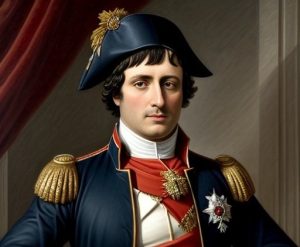Napoleon Bonaparte’s journey from general to French Emperor changed his life and French history. His rise showed his military skill and his vision for legal change. The Napoleonic Code was more than just war victories; it changed French civil life. It balanced strong government with people’s rights, a new idea that lasted. During a time of change, these reforms showed Napoleon’s lasting impact, proving he was more than just a military leader. His legal changes left a big mark on France and influenced modern law. This essay looks at how the Napoleonic Code was key to Napoleon’s plans, changing society and affecting laws beyond France. It changed authority and personal freedoms in ways that still matter today.
Napoleon’s Napoleonic Code showed he knew change wasn’t just about military victories. It was also about legal and social reform. Introduced in 1804, the Code moved away from France’s old feudal laws. It set up a fairer civil law system. This change balanced strong central authority with equality and individual rights. Unlike the old system, the Code protected private property and kept the state secular. It made laws the same everywhere in France and protected citizens from unfair power. The Code’s impact went beyond France. It influenced many legal systems in Europe and Latin America. So, while Napoleon is famous for his military campaigns, his approach to governance had a big impact too. By mixing authority with civil liberties, Napoleon changed societal norms and still influences legal thought today.
Building on his legislative success, Napoleon Bonaparte skillfully moved from a general to France’s first Emperor. Doyle (2016) notes that his rise wasn’t just about tactics; it was also about gaining and legitimizing power through reform. As First Consul, he had a lot of power, which helped him become Emperor. This event showed his ambition and the rebirth of the nation. The Napoleonic Wars weren’t just about getting more land; they showed his idea of a stable and united Europe. These wars made France a strong force, but it was his policies like the Napoleonic Code that changed society. His military skills and new laws strengthened authority and supported civil rights. Napoleon changed France by balancing conquest and lawmaking. His impact goes beyond battles, leaving lasting marks on society and government worldwide.
The Napoleonic Code set the stage for Napoleon Bonaparte becoming the first French Emperor. His military skill in the Napoleonic Wars matched his vision for a new France. Napoleon’s rise from revolutionary leader to emperor wasn’t just for personal gain. It was a smart political move, showing his deep understanding of governance. He used his military victories to gain power, taking advantage of the chaos of revolution and war. Napoleon’s battlefield successes and power consolidation made him seem unbeatable. His self-coronation was more than just a ceremony; it symbolized a national rebirth. He mixed autocratic rule with the egalitarian ideas of the Napoleonic Code. His government strengthened state authority but also advanced individual rights and equality. While his military wins were big, his legal reforms were just as important. Napoleon balanced centralized control with civil liberties, leaving a dual legacy. He was both a conqueror and a reformer. Napoleon reshaped France and its governance, impacting statecraft and legal systems worldwide.
To sum up, Napoleon Bonaparte’s legacy as the first Emperor of the French is more than just about his military skills. It’s also about his forward-thinking approach to law and government. The Napoleonic Code shows he knew real change needed more than battles; it needed changes in laws and society. He combined strong control with a focus on civil rights, changing how states were run. This wasn’t just about his own goals but reshaped national identity and international laws. His rule showed how military strategy and good governance could work together. Napoleon’s impact goes beyond just winning wars. He was a leader who balanced power and progress, leaving a lasting mark on modern governments. His life is an example for leaders wanting to mix power with progress, leaving a legacy that goes beyond his time.

